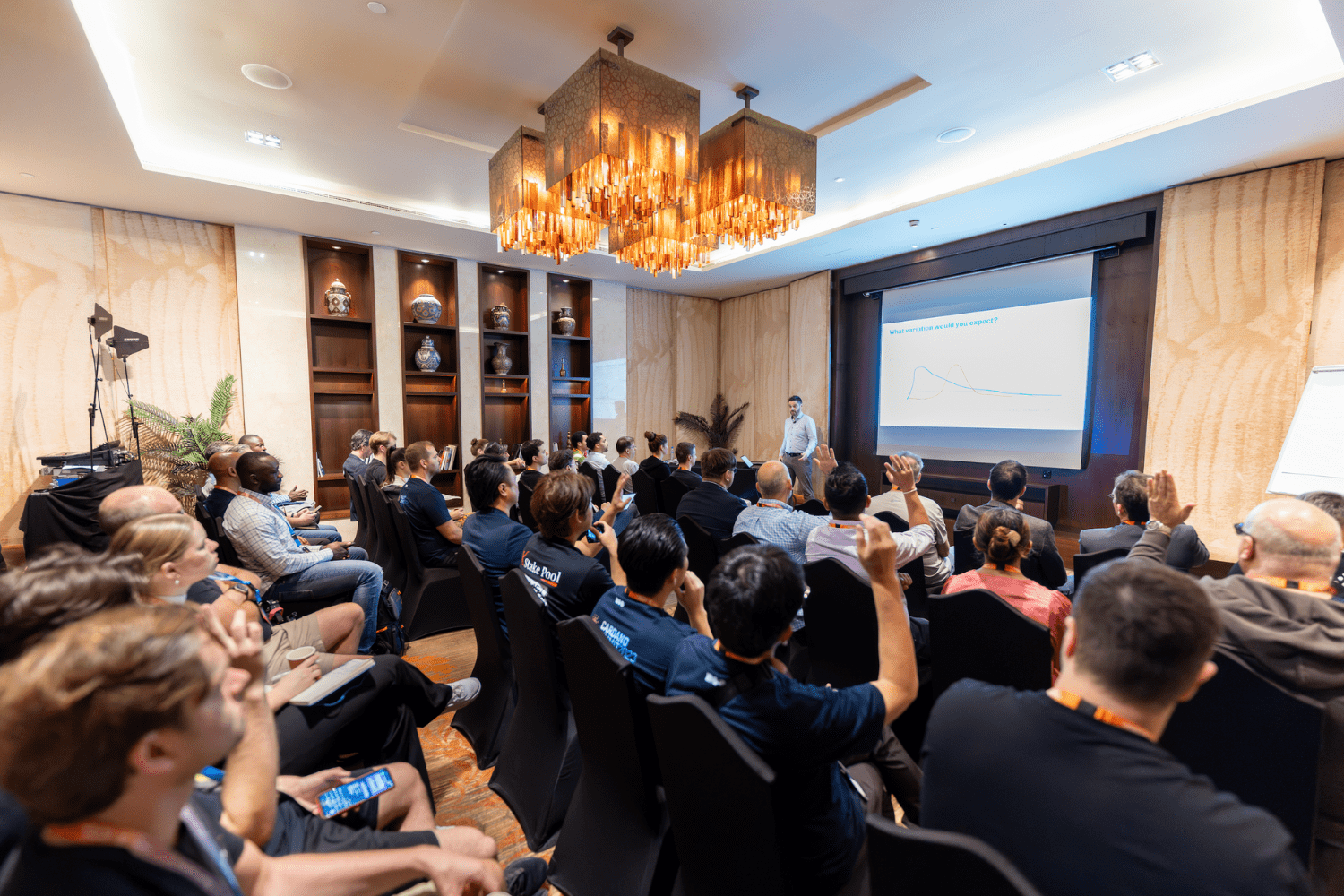 Back to News Room
Back to News Room
News

The rise of the ‘unconference’
Why a new way of conferencing could work wonders for your business…
Conferences, as understood by the majority of businesses and industries, are events that provide a platform for professionals to network with one another, share career-focussed developments, and learn more about upcoming trends in their particular field. This usually follows a traditional setup of pre-determined themes discussed through timetabled workshops and speaker sessions.
In these sessions, selected speakers usually deliver their research or thoughts to a large audience through conventional methods such as presentations and posters. However, according to a study by PMC, ‘the most stimulating discussions generally take place over coffee breaks when attendees can interact with each other.’
This gives attendees a chance to ‘discuss various topics, including their own research interests, in a more informal manner, while expanding their own professional networks.’ Given the findings, it seems that traditional conference agendas may not fully allow a two-way interactive experience for attendees, where they can feedback their own insights to their industry peers.
So what is an unconference and how is it different?
‘Unlike traditional conferences, an unconference is a participant-oriented meeting where the attendees decide on the agenda, discussions topics, workshops, and often, even the time and venues.’
For participants, this is a great way to ensure they get exactly what they want from a conference by being allowed to suggest topics that are directly relevant to them. The format was developed by the technology sector and has since been adopted by all kinds of industries.
However, just because it doesn’t follow a traditional conference setting doesn’t mean that the unconference can’t follow a structure. Planning any kind of event requires organisation and preparation – without it, it either wouldn’t work, or wouldn’t happen.
Why do they work?
The concept and organisation of an unconference has developed as the ‘traditional workplace’ has changed to a much more flexible one. In ‘The Geeks Guide to Unconferences,’ blogger Dave Winer described the premise of the unconference as understanding that ‘the sum of the expertise of the people in the audience is greater than the sum of the expertise of the people on stage.’
This is encouraging for companies who are looking to adopt an unconference structure, as being able to get audience members involved in the creation and execution of the event will no doubt attract and impress forward-thinking professionals who have particular topics they’d like to investigate.
Additionally, removing the notion of a ‘hierarchy’ through selected speakers or panellists creates an equal playing field for all involved, making it much more of a discussion, and less of a seminar. As the saying goes ‘you learn something new every day,’ and in this case, that is made even more possible by creating a breeding ground for professional conversations that may not happen elsewhere.
Despite having worked on hundreds of conferences and business events, First Event’s first unconference didn’t come around until September 2018. Our Senior Account Manager, Kerry, headed up the project:
“The unconference we delivered for our client was a massive success, and it really challenged my existing thoughts around conferences and how they work. The event was targeting those in the coworking industry, which is a relatively new development in the way people work, so delivering an event that was equally as innovative made sense.
Using a unique, open-place space worked brilliantly, encouraging networking amongst delegates and suppliers. Masterclasses, workshops and conference sessions were hosted across two separate to give delegates the freedom to plan their time according to what is most important to them.
One of the walls in the venue was used as a creative space for delegates to make topic suggestions, which again, encouraged conversation and allowed our clients to understand how they could be successful in meeting the needs of the delegates.
On day one, delegates were encouraged to voice any pressing issues or burning questions challenges they had, which made the content of the unconference really relevant, and meant people walked away feeling they had been heard, and questions had been answered. After all, the best way to fulfil your attendees’ needs is by giving them exactly what they want - and what better way to do this than to ask them while they are there in the moment!”
Making the most of an unconference
The idea of an unconference is great, mainly due to the increased and improved engagement opportunities for delegates. However, figuring out how you can put these practices into motion is difficult.
We’ve previously talked about the event technologies to enhance your event, and the importance of marketing for events – but how can these be taken and used to take you from lacklustre conference, to exciting unconference?
Apps to encourage engagement
Keeping delegates engaged can be done through their own smart devices, with 91% of event organisers claiming to have experienced positive ROI when adopting a mobile event app.
Event apps are a fantastic way to ensure delegates are kept up-to-date with important event information, sending updates directly to their mobile devices and can be implemented from the very beginning of the event planning process – all the way through to post-event feedback. Event apps also allow delegates to personalise their itinerary, communicate with other delegates, and find further information about specific talks or workshops.
Another bespoke feature that could be a part of an event app is the ability for delegates to submit topics, questions, or arguments important to them. Through the app, delegates could then vote for the topics they’d most like covered in the conference sessions – putting them in control of the content they are consuming.
Engagement can be measured by time spent on the app, and the actions taken during that time, and can be a great indicator of what has worked, and what needs to be improved.
Whilst it may be hard for businesses to break away from the traditional conference structure, unconferences offer a new and exciting way to encourage stimulating conversations and provide positive networking opportunities. By creating an atmosphere where delegates are just as much a part of the conversation as selected speakers and panellists, pressing industry topics and individual challenges can be addressed in a unique, professional and educational environment.









